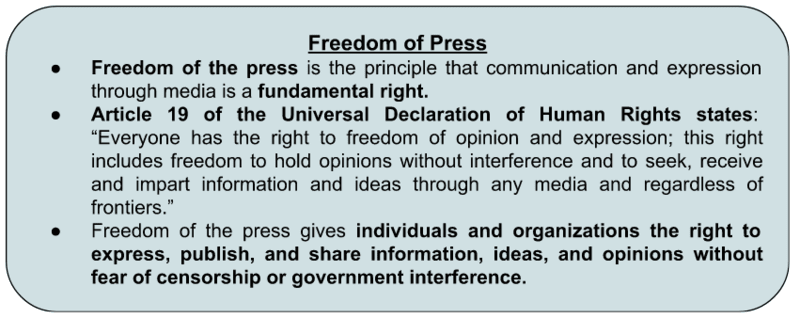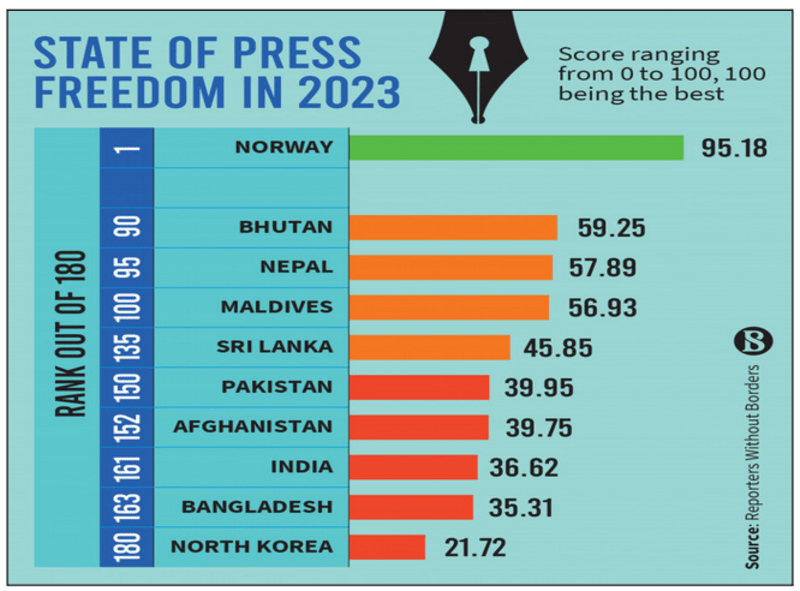Limiting search and seizure: On digital devices and media professionals
News Excerpt:
The recent incidents where unfettered powers exercised by agencies to seize communication devices of media persons has threatened the freedom of speech.
Context:
The supreme court recently ordered the union government to frame the guidelines for protecting the interests of media professionals in the context of seizure of their digital devices during recent raids.

How it affects:
- Recent actions against journalists, where their digital devices like laptops and smartphones were seized and searched, have sent a not so positive message not just to the wider media fraternity but also to whistle-blowers and others who speak to journalists on the condition their identity will not be revealed.
- If a journalist’s communication devices can be seized and their data examined, it eventually compromises the sources of information and impedes news professionals’ ability to do their job.
- Hence, it hinders the freedom of speech and the right to livelihood of journalists, as digital communication devices have become the critical tools of the profession.
Suggestions for guidelines:

- Requirement of Judicial Warrant: Law enforcement agencies should not be allowed to seize or search devices without prior judicial approval, specifying the information they expect to find rather than engaging in general searches.
- Protection of Journalists: Journalists should not be compelled to incriminate themselves or reveal their sources by providing passcodes or biometric data.
- Data Protection Protocols: Guidelines should include protocols to safeguard devices and data from leaks, tampering, or unauthorized access. Irrelevant data should be deleted promptly, and there should be measures to prevent data transfer to third parties.
- Cloning of Devices: Technological interventions should allow for the cloning of a device, enabling journalists to continue their work without being deprived of their data for an unspecified period.
- Recording Seized Devices: A record of the device at the time of seizure should be created to prevent the planting of incriminating material during the investigation process.
- Transparency and Public Consultation: Guidelines should be transparently drafted and involve public consultations to ensure a fair and balanced approach.
- Updating Laws: There's a need to update existing laws regarding search and seizure by law enforcement to adapt to these new digital realities.
Conclusion:
The Court referred to the fact that “privacy itself has been held to be a fundamental right”, indicating that this is an issue involving all citizens whose professional and personal lives are increasingly contained in a vulnerable hand-held device, hence there should be proper guidelines to ensure the privacy should be maintained.


